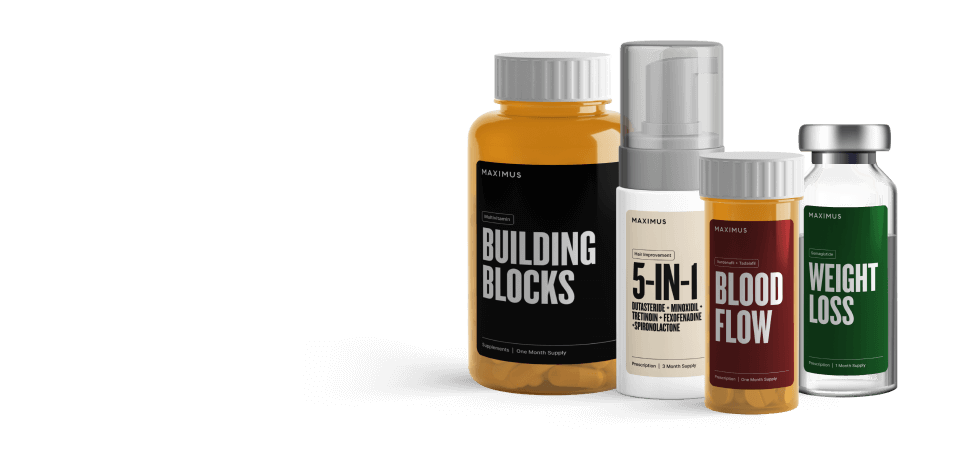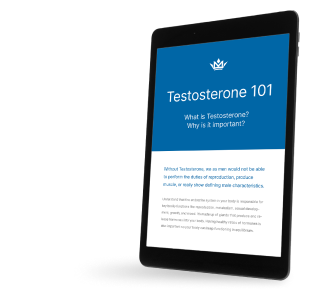Some important takeaways:
- Different types of therapy cater to different types of people. Make sure to do your research and find the best type of therapy for you and your needs.
- Consider someone’s background, expertise, and orientation when evaluating whether he might be the right therapist for you.
- Therapy requires hard work, but if you stick with it, you’ll notice the impact that it has on your mental outlook, relationships, and career.
By now you know that we’re big on taking care of mental health around here, which is key in maintaining healthy relationships, thought patterns, and stress levels. As with your physical health, prioritizing your mental health requires investing a bit of time and energy.
If you have no problem doing whatever it takes to keep yourself in prime physical condition, it might help to think of this like training for an endurance race. In fact, therapy is a form of training for your mind. Getting your body into peak physical shape requires an expert-approved workout regimen. You have to eat right, sleep well, and fuel your body appropriately. Preserving and bettering your mental health requires a similar commitment, and can involve steps like exercising, making sure you’re getting enough sleep, practicing gratitude, and connecting with others.
You know what’s also clutch? Seeing a qualified mental health professional. Starting therapy is an ideal way to hone in on your mental wellbeing. But we completely understand that it can be difficult to know how to begin — or figure out what the best options may be for you.
Read on for our expert-backed tips on how and why you should consider starting therapy.
Therapy works. Here’s why you should give it a try
Have you ever felt skeptical of whether therapy can actually work for you? That’s normal. According to a survey conducted by the Center for Disease Control in 2019, women were more likely than men to seek out mental health treatment. While it’s difficult to pinpoint the exact reason for this, research suggests that women have a more favorable view of seeking out help from mental health professionals than men. There’s also the fact that men are often taught to hide their emotions.
In a 2019 survey conducted by Ipsos MORI of 4,000 men across four countries, 58 percent of men said that they felt like they were expected to be “emotionally strong and not show weakness,” and 62 percent of men surveyed said that they avoid talking about their feelings in fear of being labeled as “unmasculine.” In the survey, participants attributed this pressure to be masculine to society, friends, and even themselves. In reality, masculinity and expressing your emotions can go hand-in-hand. In the survey, 77 percent of men said they think talking is an effective way to deal with their problems, and 76% said they believe talking openly can positively impact their mental health.
Even if you’re feeling hesitant, it’s still worth pushing yourself to give therapy a try. Talk-based therapies can help you manage stress, reduce anxiety, manage life transitions, navigate relationship issues, and deal with depression, among other benefits. And if you’re going through a particularly difficult time, such as losing your job or experiencing the death of a close friend or family member, seeing a therapist can give you a chance to work through those difficult situations.
Figuring out what type of therapy is right for you
Therapy is a broad term that encompasses many different methodologies. For the best chances of sticking with the practice, it’s important to find the type of therapy that works best for you. With talk-based therapy, most mental health professionals follow some version of cognitive behavioral therapy (CBT), which is currently considered the “gold standard” in psychotherapy. Practitioners of CBT examine and change their thinking and behavioral habits to be able to cope with current problems they’re facing. However, CBT encompasses a variety of more specific approaches, including acceptance and commitment therapy (ACT), which is a form of psychotherapy taught and practiced by Maximus CEO Dr. Cam Sepah. Read on to learn about some of them and find out which type may be best for you and your goals.
- Acceptance and commitment therapy (ACT): Dr. Cam is both a student and practitioner of this form of CBT. With ACT, instead of resisting your difficult emotions, you learn how to accept them, thereby increasing your psychological flexibility. This enables you to confidently deal with unpleasant thoughts and difficult situations when they arise.
- Dialectical behavioral therapy (DBT): If you have trouble regulating or managing intense emotions, you may want to consider DBT. This form of CBT balances validating you and your emotions with pushes for changes in your thought and behavioral patterns.
- Rational emotive behavior therapy (REBT): It’s easy to get stuck in an irrational, unhelpful thought pattern. If you have this tendency, you may want to consider REBT. This form of CBT teaches practitioners how to distinguish between rational and irrational beliefs and prioritize the rational beliefs in everyday life.
Tips for finding the right therapist from Dr. Cam
When you’re investing your time and energy in therapy, you want it to lead to better mental health outcomes. Finding the right therapist is a crucial step in getting there. While the vetting process can be difficult, putting in the work to find a professional that you can relate and connect to is essential.
Here are some of Dr. Cam’s tips when searching for a therapist:
- Find a licensed professional: In a world of self-proclaimed gurus and coaches, trying to find a professional to support your mental health can feel challenging. When you’re considering a potential therapist, make sure they’re a licensed mental health professional. When you see a licensed professional, you can be assured that they went through a rigorous training process, are bound to professional ethics, and underwent a background check.
- Ask your peers for recommendations: In your search for a therapist, it can be helpful to ask for recommendations from your friends and others who you’re close with. If they have a therapist, their therapist may be able to make some recommendations as well.
- Check out the credentials: Being a qualified professional goes beyond just having a license. Do a deep dive into your potential therapist’s background. At what university did he do his training? Did he complete an American Psychological Association-accredited program? Make sure to do your research.
- Consider your focus: What do you actually want to achieve in therapy? Like any profession with a broad scope, therapists specialize in different conditions. Select a therapist that aligns with you and your priorities.
- Understand your therapist’s orientation: Different therapists rely on different approaches in their work. For example, if you think that ACT may be the best methodology for you, find a therapist that practices that type of therapy.
Dr. Cam’s Health Hack
One of the hardest parts of starting therapy is finding a therapist. However, stay resilient and determined in your search. Here’s what Dr. Cam has to say:
"Saying 'therapy won't work for me' is like saying 'relationships don't work for me.'
People misunderstand therapy. Therapy is a professional relationship. That means it can be good or bad, depending on the quality of your partner.
You don't avoid it. You find the right one."
Disclaimer: The contents of this article, including, but not limited to, text, graphics, images, and other information, is for information purposes only and does not constitute medical advice. The information contained herein is not a substitute for and should never be relied upon for professional medical advice. The content is not meant to be complete or exhaustive or to be applicable to any specific individual's medical condition. You should consult a licensed healthcare professional before starting any health protocol and seek the advice of your physician or other medical professional if you have questions or concerns about a medical condition. Always talk to your doctor about the risks and benefits of any treatment. Never disregard or delay seeking professional medical advice or treatment because of something you have read on this site. Maximus does not recommend, endorse, or make any representation about the efficacy, appropriateness, or suitability of any specific test, products, procedures, treatments, services, opinions, healthcare providers or other information contained herein. Maximus is not responsible for, nor will they bear any liability for, the content provided herein or any actions or outcomes resulting from or related to its use.








